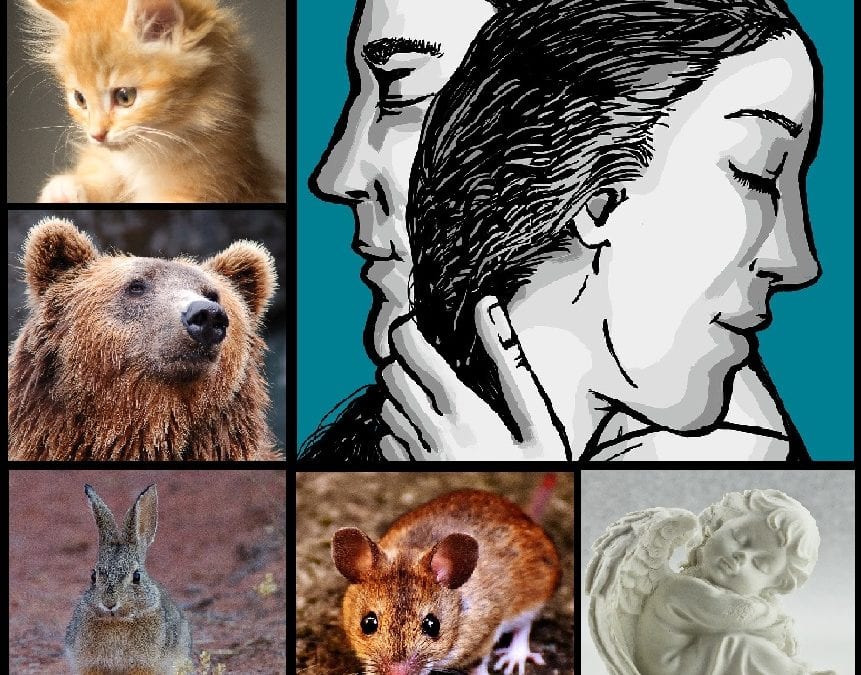The Use of German Terms of Endearment
It doesn’t matter if they are partners, friends, children or pets: If you want to show verbal affection, you can use terms of endearment. And German is no exception. So, what are German terms of endearment? Are they very different from English?
Most Common German Terms of Endearment
The most used German terms of endearment seem to be the most boring ones, like Schatz ‘treasure’ with its variations Schatzi or Schätzchen. That one is so common that people make fun of it. Furthermore, some German people don’t use terms of endearment at all, which probably fits in with the German stereotype. Why invent a name if you already have one? Other common German terms of endearment are Maus/Mäuschen ‘mouse’, Hase/Häschen ‘rabbit’, Süße/-r ‘sweetie’, Liebste/-r ‘the most loved one’, Engelchen ‘little angel, and Bär/Bärchen ‘bear’. So, maybe German people do like their endearing names! Especially animal names, although this might not be only a German trait, since, for instance, Polish also uses animal names for their terms of endearment.
As you can tell, you can call your loved one pretty much any animal name. Besides, you can make the name even cuter by adding the suffix –chen. This way you don’t call your loved one ‘bear’ but ‘little bear’, which shows even more affection. The suffix –i /y works in the same way: Hasi, Mausi, Bärli, and with first names Isy, Benni, Matthi.
Less Used, But More Creative German Terms of Endearment
There are German terms of endearment that are a little bit more creative, such as Schnucki, Schnuffi, Knuddel, Knuffi, Schmusi. They don’t necessarily mean anything, but they simply sound cute. The more you combine a cute sounding word with an animal name, the more affectionate it sounds. So here we go again with the long German words about which you can read in this blog post. Just have a look at Schmusetiger ‘cuddle tiger’, Knuddelkätzchen ‘little cuddle cat’, Mausebär ‘mouse bear’or Mausezähnchen ‘little mouse tooth’. Combine whichever words you think sound best. If they sound nice, the meaning takes a back seat. Knuffiwuffi, Knuddelwuddel or Schmusiwusi just sound funny and have no meaning at all! So get creative and find German terms of endearment that fit your loved one perfectly.
What about English Terms of Endearment?
Because English is so diverse, of course the terms of endearment vary from place to place. Some typical ones nowadays are, for instance, love, baby/babe/bae, things that are sweet like honey, sugar or sweetheart/sweetie and adjectives that describe the partner’s good looks like gorgeous or beautiful. In German, you can call a person Schöne/-r ‘the pretty one’. But in comparison to English, German uses animal terms instead of sweet things. At least in the most common use. There will always be exceptions.
Here at LingoStar, we can provide any kind of a language service. We have professional translators available that know their way around cultural differences and provide a range of language services including translation and typesetting, interpreting services, subtitling, etc. For more information, contact us by calling 604-629-8420 or emailing info@lingo-star.com to discuss your next language-related project. You can also request a free quote via our website dev.lingo-star.com. We are here to help!

















